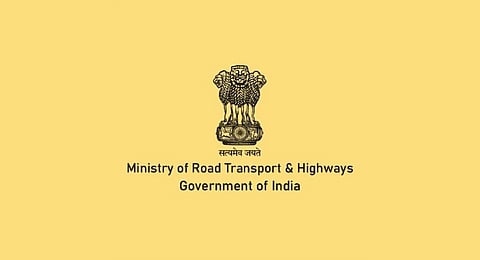MoRTH to frame IRC guidelines after adopting new-age machines for faster highway construction
NEW DELHI: After the Ministry of Road Transport and Highways (MoRTH) decided to adopt Automated and Intelligent Machine-aided Construction (AIMC) for highway development to ensure timely project completion, it announced that Indian Roads Congress (IRC) guidelines will be prepared based on feedback from contractors and concessionaires.
The ministry has already sanctioned atleast 16 projects, where innovative machines will be used. According to the officials, Cabinet approval is awaited for 10 projects envisaged for implementation of AIMC system.
“With a significant growth in the national highways network including a significant increase in Greenfield and Brownfield highways with high embankments requiring a significant amount of earthwork and proper compaction in the last one decade, it has been felt appropriate to induct AIMC in highway construction,” said officials.
The decision to formally adopt the system was taken after evaluation of efficacy in a pilot; Lucknow-Kanpur Expressway Project, where in GPS-aided Motor Grader, Intelligent Compactor and Stringless Paver were used. The ministry also took into consideration the feedback from stakeholders and international guidelines and specifications.
The ministry has also sought feedback on adoption of AIMC to formulate IRC guidelines, added officials.
Officials added that the ministry would facilitate the concessionaire or contractor with the required license for the radio frequency range from the Department of Telecommunication (DoT) for the use of machines.
The list of projects, which are already sanctioned, includes Western Bypass Gwalior (29 kms), 6-lane Greenfield Ludhiana Bypass (25 kms), Deoghar Bypass (49 kms), Shillong-Silchar Corridor (167 kms), Vrindavan Bypass (15 kms) and Patna-Arrah-Sasaram (125 kms) in Bihar.
The projects which have been submitted for the Cabinet approval are Satellite Township Ring Road of Bengaluru (STRR) Karnataka (144 kms), BadveI Nellore Corridor (108 kms) in Andhra Pradesh, 4-lane access controlled Sirhind-Sehna section of NH-205AG (107 kms) in Punjab, and Nashik-Ahmednagar- Solapur-Akkalkot segment of the Surat-Chennai Expressway (374 kms).
The ministry, in December, sought feedback from roads construction agencies, public work departments in states and union territories and other stakeholders on the proposal for adoption of the construction facilitated by innovatory.
The benefits of AIMC are expected high adherence to design specification, improved rideability, performance durability and longevity and reduced wastage as well. The technology-driven construction also increases productivity, helps in real-time documentation, brings better transparency and minimises human interventions.

